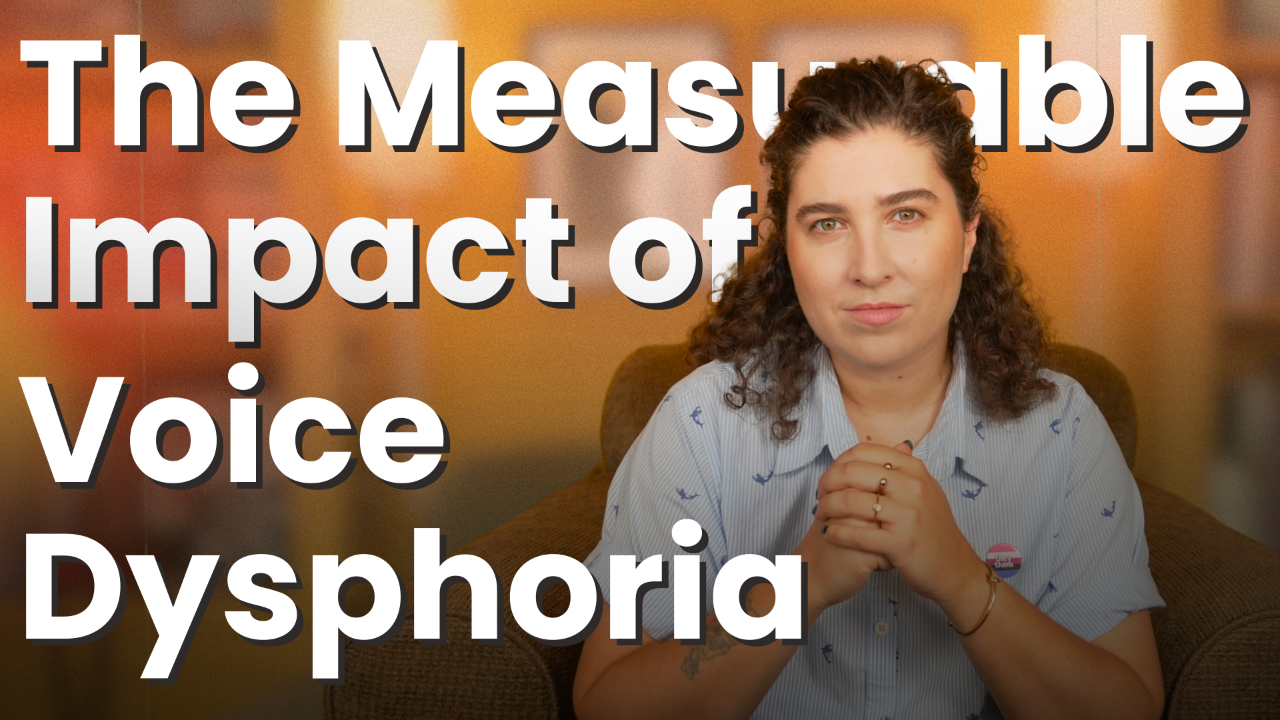Taking testosterone and grieving your old voice
Aug 03, 2022I think it's a little taboo to talk about grief and hormone replacement therapy in the trans community. We're already fighting for our lives and working hard every day to gain acceptance, it feels like a major transgression to imply that there might be doubts along the path of medical transition.
Of course, any trans person knows that there are many doubts along that path. Nobody, after a lifetime of receiving messages telling you that being trans is indecent, wakes up feeling 100% confident in starting their medical transition.
Usually, once a trans person starts hormones, even if they had doubts going in, the gender euphoria they experience takes any remaining doubts.
However, it has been the experience of some of my students on testosterone that, even if the overall feeling of taking HRT is one of joy and relief, there can still be some grief around the loss of their old pre-T voice, especially if they were a voice professional of some sort.
I had a student the other day who was going through these grief emotions. They love being on T and know it was the right choice for them, but the accompanying voice changes have been very difficult for them because they loved singing and using their voice in other ways. Now there's this overwhelming sense that they'll never experience the freedom they felt in their voice ever again.
This type of grief seems to be particularly painful in my students because they believe that it was their action (taking T) that caused this loss. And yes, strictly speaking, this is true; however, I think it's important to zoom out and look at the voice as it is: a malleable and ever-changing thing that changes drastically throughout one's life.
I try to remind my students that their voice was never going to stay as it was. Voices change naturally as we age. It's possible to lose range and vocal flexibility. Lots of people also report drastic voice changes during menopause. The voice is also affected by multiple aspects of health both directly and indirectly. Any illness or disability can make it hard or impossible to use your voice or hard or impossible to maintain a practice routine.
This is to say nothing of the specific vocal health issues that can arise for voice professionals with demanding jobs.
I tell all this to my student to remind them that voice changes are inevitable and that the voice they loved before taking T was always only a temporary state for the voice.
I usually don't need to remind my student what the consequences of not taking T can be: depression, anxiety, or even suicide. Hormones are a life-saving treatment for trans people, even when they may cause some feelings of grief.
Grief can be a feeling that one experiences and moves through, but the crushing daily dysphoria that my student experienced before testosterone would not go away without hormones.
The great thing about the voice is that it is something that can be retrained. I reminded my students that there are plenty of people with endogenous testosterone who were singers before puberty and went through the same thing in their teen years that my student is going through in their forties. Now that their voice is different, we have to work together to retrain the voice and retrain the brain to sing in the most efficient way possible.
It definitely does not feel good to be back at the beginning later in your life, but I see it as a beautiful opportunity to embrace the beginner's mindset again. You have no choice but to let go of everything you thought you knew about singing and start fresh. This is an opportunity to let go of your ego and embrace that inner child who doesn't feel shame in not knowing.
We need to be able to do this in order to learn anything new later in life, and it's totally possible with practice.
I've helped many students move through this difficult time, and they've come out the other side, not with the same vocal abilities they had before, but with new ones. And you can do it too.
Want weekly tips, resources, and insights on trans voice training? Sign up for my newsletter and get the latest content delivered straight to your inbox. It's free!









